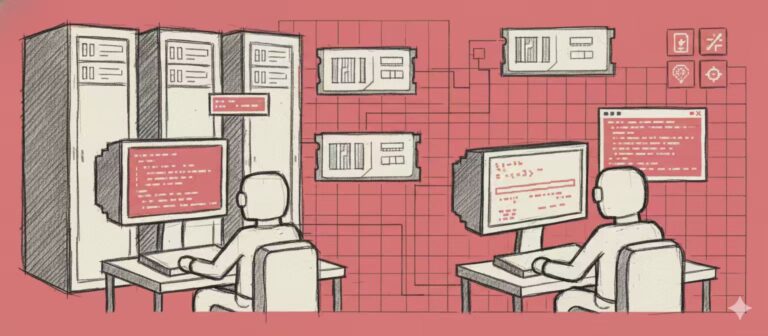Command Palette
Search for a command to run...
The Wife of the Canadian Prime Minister and the Assistant to the Brazilian President Have Been Diagnosed With the virus. Does the Coronavirus Favor Politicians?
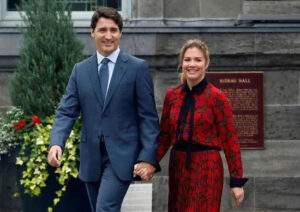
During the epidemic prevention and control period, "not touching the face" is an effective way to prevent contact transmission. However, this seemingly simple action is not easy to achieve, as people often touch their faces subconsciously. In order to solve this problem, a technology startup company has developed a wristband that reminds people "not to touch their faces".
A few days ago, Sophie Grégoire, the wife of Canada's handsome Prime Minister Justin Trudeau, was diagnosed with the new coronavirus pneumonia. Currently, Trudeau is in self-isolation with his wife.

The Canadian Prime Minister's Office said Sophie had mild flu-like symptoms after returning from London, England, and had a low-grade fever on the evening of March 11. Although Trudeau had no symptoms, he followed the doctor's advice to self-isolate and work from home as a precaution.
Politicians around the world are repeatedly infected: Does the virus love high-ranking officials?
As of 11:15 on March 13, 2020, Dingxiang Doctor data showed that the total number of confirmed cases in the world, excluding China, has reached 52,125, of which 44,202 are currently confirmed. Among the confirmed patients, there are many famous football stars, actors, politicians from various countries and other celebrities.
The following is a summary of the major countries and political figures affected by the global pneumonia outbreak:
Italy:
Many senior Italian officials have been confirmed to be infected, including Zingaretti, leader of one of the main ruling parties, the Democratic Party, and Farina, Chief of the Army General Staff.
Iran:
Deputy Minister of Health Iraj Hariqi, Vice President Masoumeh Ebtekar, and several members of parliament have been diagnosed with COVID-19. So far, no less than 30 members of parliament and more than 10 ministerial-level officials have been confirmed to be infected.
Brazil:
Fábio Wajngarten, an aide to the Brazilian president, tested positive for the coronavirus a few days after traveling with the Brazilian president to the United States for a meeting with Trump.
France:
French Culture Minister Franck Riester was diagnosed with the new coronavirus after attending a meeting with French President Emmanuel Macron and several senior ministers.
Senior politicians and officials come into contact with numerous media, staff, and medical staff every day, and deal with other politicians from all over the world. At the same time, it is difficult for them to get enough rest under the high-intensity work, and they inevitably become a high-risk group for infection.

One of the ways the new coronavirus is transmitted is through contact. Medical institutions have always emphasized that to prevent the virus, one must wash hands frequently and avoid touching the cheeks, mouth, nose, eyes and other parts of the body with their hands.
But this seemingly simple method often fails in reality. Recently, a "face-slapping" video circulated on the Internet: a US health official licked his fingers and flipped through a document after advocating not to touch the face with his hands.
This kind of behavior is not uncommon. Maybe you can't help touching your face with your hands while reading this article.
Although this small action is an unconscious behavior, it will greatly increase the risk of cross-infection during the epidemic.
How can we help people correct this habit?
Recently, a technology company developed a magical wristband that can play a corrective role by providing timely reminders.
New wristband for epidemic prevention: Want to touch your face? You will be shocked!
This startup called Slightly Robot recently launched a portable wristband called Immutouch. When used with a mobile phone app, the wristband will issue a warning when the user wants to touch the face.
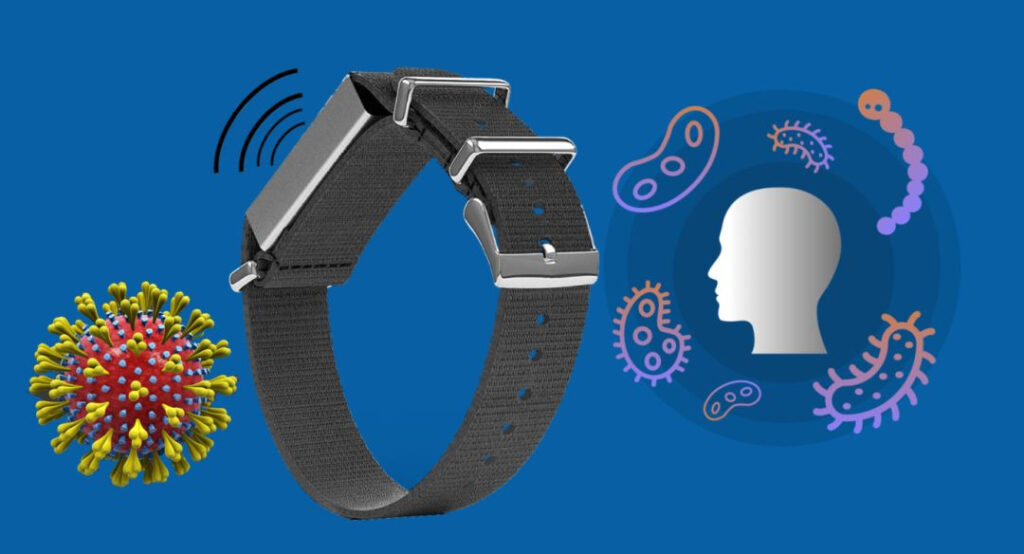
Slightly Robot previously developed another device that can help patients with "trichotillomania" (a mental disorder in which patients pull out their hair uncontrollably) to quit the habit of pulling their hair.
On this basis, Slightly Robot used existing facilities and related code libraries to design the wearable wristband Immutouch in a week to meet the need of not touching the face during the epidemic.
The principle of this wristband is not complicated. It uses conditioned reflex to "punish" wrong behaviors to remind people to correct bad behaviors.
The wristband has a built-in gravimeter that uses a personalized algorithm to track the position of the hand. When the user touches his or her face, eyes, nose or mouth, the wristband will vibrate and buzz.
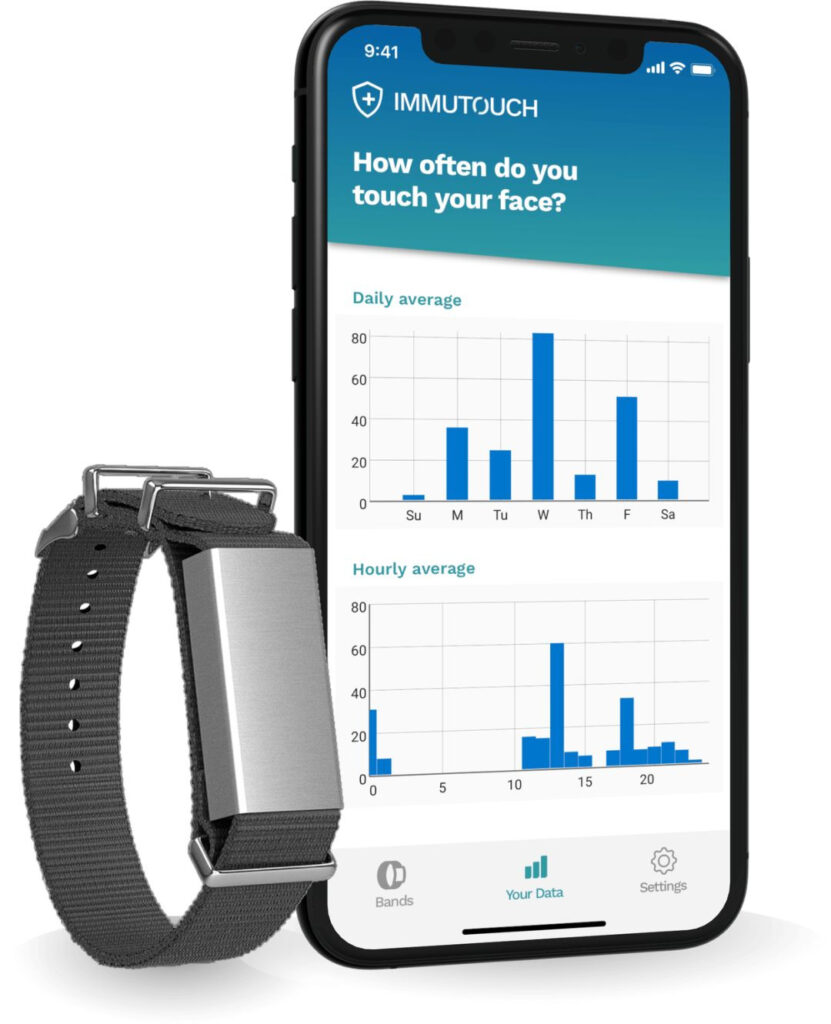
As usage time increases, the software will gradually improve the reminder function based on the data to help users quit the habit of touching their face.
Wristbands may help prevent promiscuous touching
Immutouch needs to be calibrated before use. Users can set the sensitivity, warning posture and other contents through the interface of the mobile phone app.
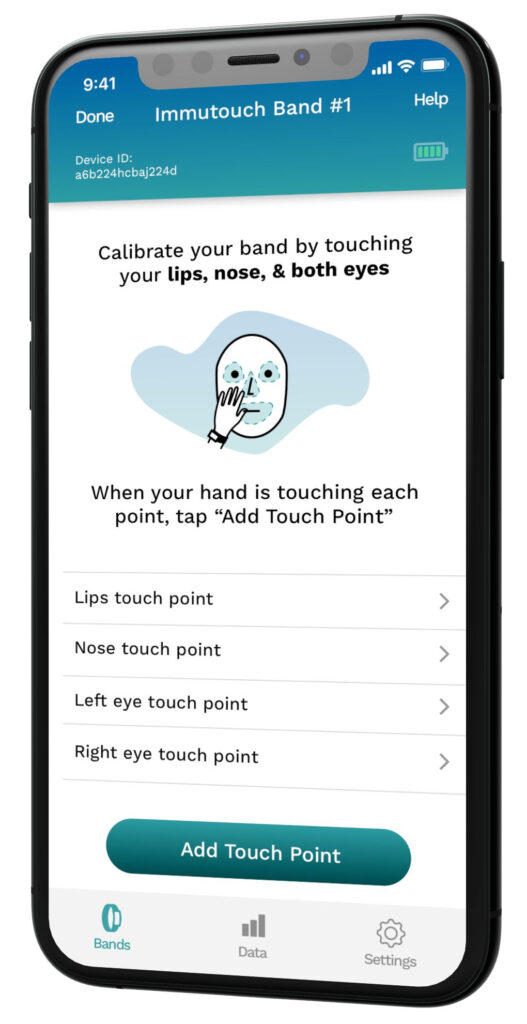
After putting on the wristband, open the calibration and interface of the App, touch your lips, nose, and eyes in turn, and the wristband will calibrate the patterns that need to be recognized in the future. When you perform the same operation later, it will automatically issue a warning and vibrate.
The effectiveness of Immutouch can be deduced from previous studies. Researchers at the University of Michigan conducted a study on the use of wearable warning devices to prevent hair loss in patients with trichotillomania, and ultimately found that this vibration warning method can effectively reduce patients' hair pulling.
Immutouch, however, is expected to achieve similar results, and its wristbands are now available for sale for $50 each.
Although many platforms have promoted preventive measures to prevent the spread of the new coronavirus, it is difficult to achieve such an unconscious action as touching the face through text suggestions. Now, through the magical wristband, this problem seems to have been solved.

-- over--

